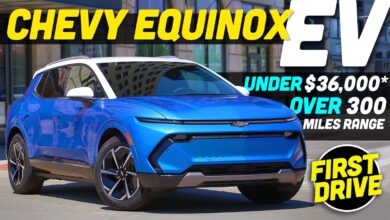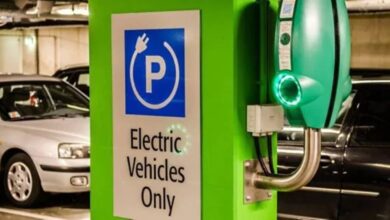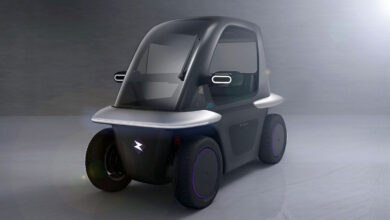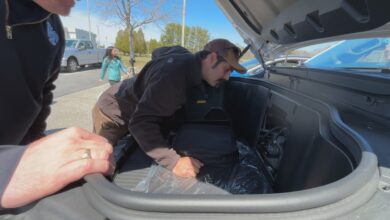Thinking about getting an electric vehicle? Here’s what to know : Life Kit : NPR
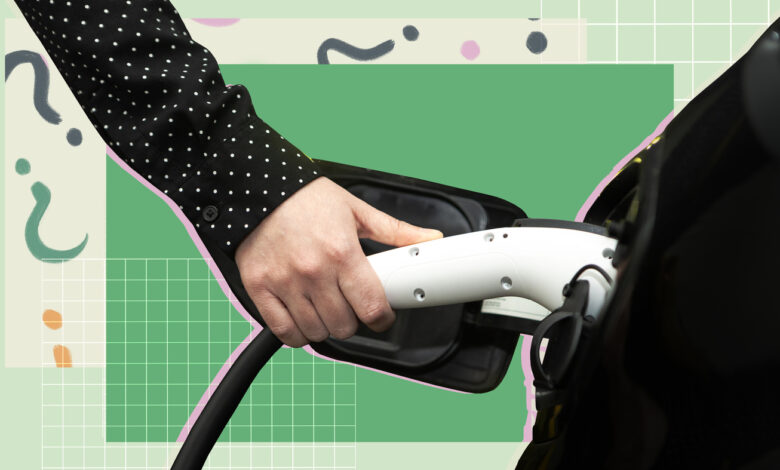
Photo Illustration by Becky Harlan/NPR
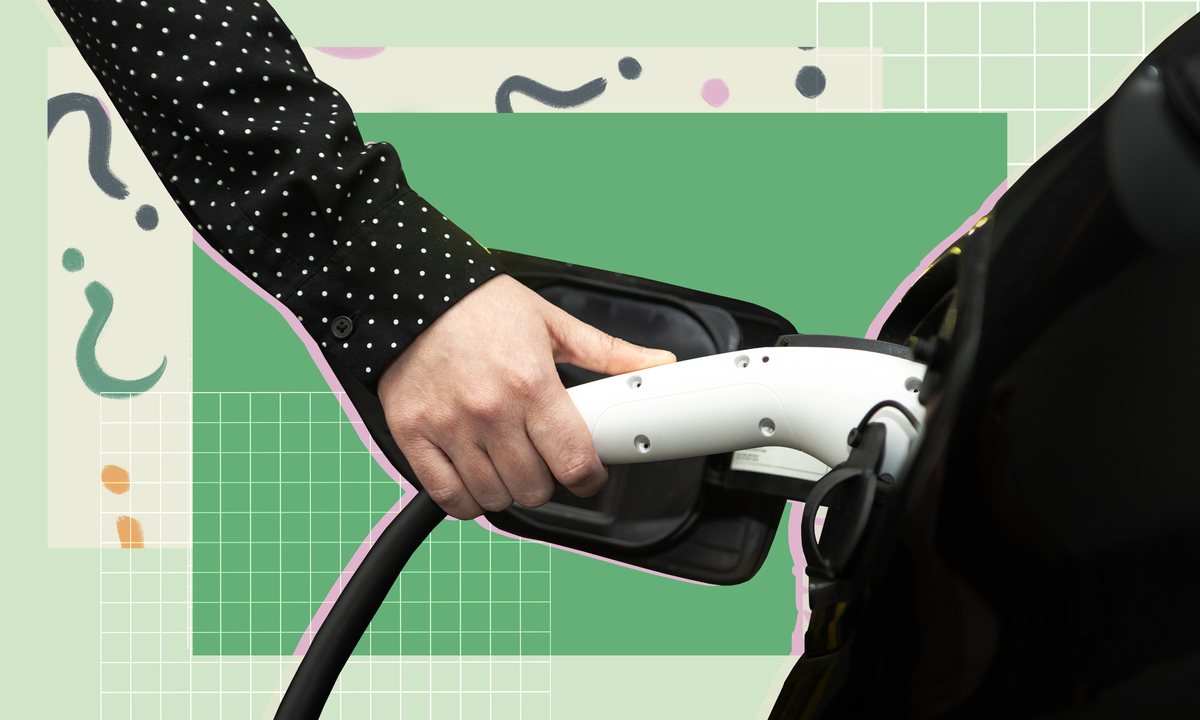
Photo Illustration by Becky Harlan/NPR
If you’re thinking about getting an electric vehicle, you’re not alone.
People in the U.S. buy more than a million new cars every month, and as of March, less than 10% of those are electric vehicles. But more than half of car shoppers are at least considering battery-powered cars and SUVs, according to multiple studies.
And shoppers have lots of questions. In January, The Sunday Story, an NPR podcast, asked listeners for their EV questions. More than 60 listeners sent in queries, and The Sunday Story and Life Kit teamed up to answer them. The listener questions have been edited for length and clarity.
Are EVs truly better for the planet, even with mining for batteries and fossil-fuel-based electricity to charge them? (This was the No. 1 question asked by our listeners.)
The answer is yes. Many researchers have confirmed it, and online tools let you compare the impacts for yourself. One of the most recent analyses comes from Corey Cantor with the energy research company BloombergNEF, who headlined his report last month: “No Doubt About It: EVs Really Are Cleaner Than Gas Cars.”
“Big picture, moving away from spewing more CO2 into the atmosphere is a good thing for the climate,” he says. And the environmental benefits of EVs are getting bigger over time as grids get cleaner.
Is it better from an environmental standpoint to buy an electric vehicle now, or keep driving the gas car you have until you need a new car? –Ali Mercural, Portland, Ore.
For the climate, there’s a strong case for switching now.
Yes, creating that new EV — getting the materials to build it from scratch — is resource-intensive. But the climate impact of a gas-powered car increases every single day you drive it.
To be precise, more than 85% of a gas-powered vehicle’s lifetime emissions come from using the car, not from building the car. That’s according to researchers at Argonne National Laboratory. And that means the new EV, despite its manufacturing costs, will be cleaner over time.
Jessika Trancik, a professor at the Institute for Data, Systems and Society at Massachusetts Institute of Technology, suggests taking the long view on decisions like these. Think not just about emissions right now but over the entire time you’ll own a vehicle.
“Generally speaking, switching to that electric vehicle is going to provide a benefit over the lifetime of the car,” she says.
I’m not proud, but I’ve run out of gas twice in my life. Luckily, I had friends nearby to bring me a gallon of gas. What would happen if I ran out of charge in an EV? Would a tow truck come to charge me up? How long would that take? And how embarrassing would that be?–Robin Rzechula, Chicago
We can’t promise it won’t be embarrassing, but a tow truck could tow you to a charger. In some cities, AAA will bring a mobile charger to you.
Overall, charging is a different experience than fueling up. With a combustion engine, you have to regularly make a stop at a gas station to fill up. With an EV, for daily driving, most people charge at home overnight – which drivers frequently cite as a major perk of EV ownership. (This does require the ability to charge at home).
For road trips, on the other hand, many parts of the country still have limited availability of fast chargers, which are high-speed chargers designed for use in the middle of a trip. Charger speeds and reliability at public charging stations vary, and charging takes much longer than filling up at a gas station.
So charging takes less work day-to-day, but more planning on long trips. Map out chargers on your route so you won’t find yourself calling AAA.
Does leasing an electric car come with the same perks (like tax rebates) as buying an electric car? –Hallie Andrews, Washington, D.C.
The same or better.
There’s a federal $7,500 tax credit for purchasing an EV, now available as an up-front credit toward the cost of the car. But the list of vehicles that qualify is short because of requirements meant to support U.S. jobs and supply chains. Buyers also have to be under an income cap.
Leased electric vehicles all qualify for a $7,500 credit – no matter where they’re built, with no income cap. Check your lease paperwork to confirm that the credit is being fully passed along to you.
Wouldn’t it be better to design cities around mass transit and use mass transit than get everyone to convert to electric vehicles? –Thomas Guffey, Los Angeles
Yes, designing cities to encourage mass transit – and to make them more walkable and bikeable – has a lower carbon footprint than relying on electric vehicles, in addition to other benefits. Electric bikes also have a fraction of the environmental footprint of EVs.
Switching to EVs is an important part of fighting climate change, but far from the only change that needs to happen.
The digital story was edited by Malaka Gharib. The visual editor is Beck Harlan. We’d love to hear from you. Leave us a voicemail at 202-216-9823, or email us at LifeKit@npr.org.
Listen to Life Kit on Apple Podcasts and Spotify, and sign up for our newsletter.
